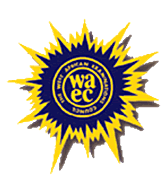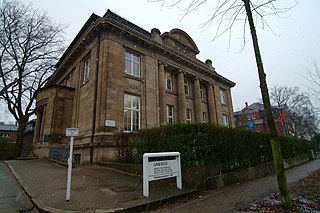
The New Partnership for Africa's Development (NEPAD) is an economic development program of the African Union (AU). NEPAD was adopted by the AU at the 37th session of the Assembly of Heads of State and Government in July 2001 in Lusaka, Zambia. NEPAD aims to provide an overarching vision and policy framework for accelerating economic co-operation and integration among African countries.

The G20 or Group of 20 is an intergovernmental forum comprising 19 sovereign countries, the European Union (EU), and the African Union (AU). It works to address major issues related to the global economy, such as international financial stability, climate change mitigation and sustainable development.

In the 21st century, the Government of Egypt has given greater priority to improving the education system. According to the Human Development Index (HDI), Egypt is ranked 97 in the HDI, and 9 in the lowest 10 HDI countries in the Middle East and Northern Africa, in 2014. With the help of the World Bank and other multilateral organizations Egypt aims to increase access in early childhood to care and educate the inclusion of Information and Communication Technology (ICT) at all levels of education, especially at the tertiary level. The government is responsible for offering free education at all levels. The current overall expenditure on education is about 12.6 percent as of 2007. Investment in education as a percentage of GDP rose to 4.8 in 2005 but then fell to 3.7 in 2007. The Ministry of Education is also tackling a number of issues: trying to move from a highly centralized system to offering more autonomy to individual institutions, thereby increasing accountability. The Human Rights Measurement Initiative finds that Egypt is achieving 89.3% of what should be possible for the right to education, at their level of income.

Education in Rwanda has undergone considerable changes throughout Rwanda's recent history, and has faced major disruptions due to periods of conflict. Education was divided by gender whereby women and men had a different education relevant to their responsibilities in day-to-day life. Women were mostly taught housekeeping while men were mainly taught how to hunt, raise animals, and fish. This is because Rwanda was a community-based society where every member had a specific contribution to the overall development of the community. Older family members like grandparents usually took on the role of educators.

The African Development Bank Group is a multilateral development finance institution, headquartered in Abidjan, Ivory Coast since September 2014. The AfDB is a financial provider to African governments and private companies investing in the regional member countries (RMC).

The West African Examinations Council (WAEC) is an examination board established by law to determine the examinations required in the public interest in the English-speaking West African countries, to conduct the examinations and to award certificates comparable to those of equivalent examining authorities internationally. Established in 1952, the council has contributed to education in Anglophone countries of West Africa, with the number of examinations they have coordinated, and certificates they have issued. They also formed an endowment fund, to contribute to education in West Africa, through lectures and aid to those who cannot afford education. Since established it continues to be one of the biggest and most globally recognized exams in West Africa.
Community education, also known as community-based education or community learning & development, is an organization's programs to promote learning and social development work with individuals and groups in their communities using a range of formal and informal methods. A common defining feature is that programmes and activities are developed in dialogue with communities and participants. The purpose of community learning and development is to develop the capacity of individuals and groups of all ages through their actions, the capacity of communities, to improve their quality of life. Central to this is their ability to participate in democratic processes.

The IBSA Dialogue Forum is an international tripartite grouping for promoting international cooperation among these countries. It represents three important poles for galvanizing South–South cooperation and greater understanding between three important continents of the developing world namely, Africa, Asia, and South America. The forum provides the three countries with a platform to engage in discussions for cooperation in the field of agriculture, trade, culture, and defence among others.
K. Y. Amoako is a Ghanaian international civil servant with a five-decade career in African development. He is a thought leader on policies and initiatives of governance and growth on the continent, and he has worked alongside development specialists to address African and global development issues.
The African Energy Commission (AFREC) is a specialized agency of the African Union (AU), under the Commission for Infrastructure and Energy, in charge of coordinating, harmonizing, protecting, conserving, developing, rational exploitation, commercializing and integrating energy resources on the African continent.
The World Cities Summit is an international conference series on public governance and the sustainable development of cities.

The UNESCO Institute for Lifelong Learning (UIL), formerly UNESCO Institute for Education, is one of six educational institutes of UNESCO. It is a non-profit international research, training, information, documentation and publishing centre on literacy, non-formal education, adult and lifelong learning. It provides services to UNESCO's Member States, NGOs, and grassroots and community organizations, as well as to partners in civil society and the private sector. The Institute works in close collaboration with its Paris headquarters, with UNESCO field offices in different countries, with sister institutes and with national and international partners.

Social protection, as defined by the United Nations Research Institute for Social Development, is concerned with preventing, managing, and overcoming situations that adversely affect people's well-being. Social protection consists of policies and programs designed to reduce poverty and vulnerability by promoting efficient labour markets, diminishing people's exposure to risks, and enhancing their capacity to manage economic and social risks, such as unemployment, exclusion, sickness, disability, and old age. It is one of the targets of the United Nations Sustainable Development Goal 10 aimed at promoting greater equality.

Martha Chen is an American academic, scholar and social worker, who is presently a lecturer in public policy at the Harvard Kennedy School and senior advisor of the global research-policy-action network WIEGO and a member of the Advisory Board of the United Nations University World Institute for Development Economics Research (UNU-WIDER). Martha is a development practitioner and scholar who has worked with the working poor in India, South Asia, and around the world. Her areas of specialization are employment, poverty alleviation, informal economy, and gender. She lived in Bangladesh working with BRAC, one of the world's largest non-governmental organizations, and in India, as field representative of Oxfam America for India and Bangladesh for 15 years.

Keith M Lewin is a British Professor of International education and Development at the University of Sussex and Director of the Consortium for Research on Educational Access, Transitions and Equity (CREATE). He is known for his work in educational planning, economics and finance of education, teacher education, assessment, science and technology education policy in developing countries, educational aid and program evaluation. He has been adviser to various governmental, multilateral and non-profit organisations on education planning and policy, including the World Bank, DFID, UNESCO International Institute for Educational Planning, UNICEF, UNDP, AusAID and others. His country experience includes projects in Ghana, Rwanda, Uganda, Kenya, Tanzania, Malawi, South Africa, Zimbabwe, Mauritius, Trinidad and Tobago, Barbados, India, Sri Lanka, Bangladesh, Malaysia, and China.

The Alliance for Financial Inclusion (AFI) is a policy leadership alliance owned and led by member central banks and financial regulatory in developing countries with the objective of advancing financial inclusion.

The World Bank is an international financial institution that provides loans and grants to the governments of low- and middle-income countries for the purpose of pursuing capital projects. The World Bank is the collective name for the International Bank for Reconstruction and Development (IBRD) and International Development Association (IDA), two of five international organizations owned by the World Bank Group. It was established along with the International Monetary Fund at the 1944 Bretton Woods Conference. After a slow start, its first loan was to France in 1947. In the 1970s, it focused on loans to developing world countries, shifting away from that mission in the 1980s. For the last 30 years, it has included NGOs and environmental groups in its loan portfolio. Its loan strategy is influenced by the United Nations' Sustainable Development Goals, as well as environmental and social safeguards.

Ashraf Mohamed El Shihy, is an Egyptian politician, the Minister of Higher Education and Minister of Scientific Research, under President Abdel Fattah El-Sisi and the government of Sherif Ismail.

Zurab Pololikashvili is a Georgian politician and diplomat, currently serving as Secretary-General of the World Tourism Organization. From 2005 to 2009 he was the Deputy Minister of Foreign Affairs of Georgia, and he served as ambassador to Spain, Morocco, Algeria and Andorra.

Somaliland and the United States do not have official diplomatic relations. While Somaliland operates a representative liaison office in Washington, D.C., it does not have formal diplomatic status under the provisions of the Vienna Convention on Diplomatic Relations. Both countries do maintain contact as delegations from both sides have met in the past.















